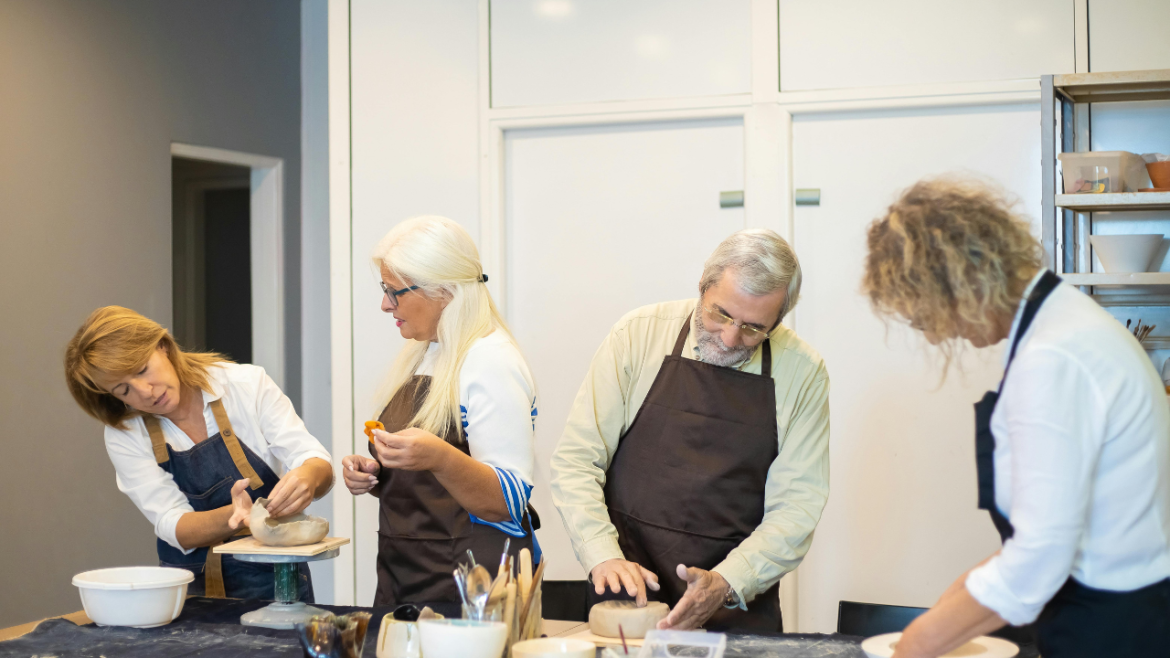Did you know that Leading Edge Senior Care has a Dementia Support Group? We meet monthly in Mesa. For more details <click here>
Why Relationships Are So Important In Home Care For Seniors
As seniors age, maintaining relationships becomes increasingly crucial. The importance of these connections cannot be overstated, particularly for those receiving home care. The bond between caregivers and seniors is foundational to the quality of care. This article explores why relationships are essential in-home care for seniors and how they significantly enhance their well-being.
Emotional Support and Mental Health
The emotional aspect of caregiving is paramount. Seniors often experience feelings of isolation and loneliness, which can lead to depression and anxiety. A caregiver who establishes a genuine relationship with a senior can provide emotional support, reducing these negative feelings. This bond helps seniors feel valued and understood, significantly impacting their mental health.
Building Trust and Security
Trust is the cornerstone of any relationship, especially in caregiving. Seniors need to feel secure with their caregivers. When caregivers take the time to build a trusting relationship, it leads to better cooperation and communication. Seniors are more likely to express their needs and concerns, ensuring that they receive the best possible care. Trust fosters a sense of safety and comfort, making the home care environment more effective and supportive.
Enhancing Quality of Life
Quality of life is a critical measure in senior care. Relationships play a significant role in enhancing this quality. When caregivers engage with seniors, it goes beyond mere physical care. Conversations, shared activities, and companionship add joy and meaning to a senior’s life. These interactions help seniors stay mentally active and emotionally fulfilled, contributing to a happier and more contented life.
Personalized Care
A strong relationship allows caregivers to understand the unique needs and preferences of the seniors they care for. Personalized care is only possible when caregivers know the likes, dislikes, habits, and routines of the seniors. This level of understanding leads to more tailored and effective care, ensuring that seniors’ specific needs are met consistently and compassionately.
Encouraging Independence
While caregiving involves assisting seniors with daily tasks, a good caregiver relationship encourages independence. Caregivers who know their seniors well can identify the right balance between providing help and promoting self-sufficiency. Encouraging seniors to do what they can for themselves maintains their dignity and self-esteem. This approach helps seniors feel more in control of their lives, fostering a sense of accomplishment and purpose.
Social Interaction
Social interaction is vital for mental and emotional well-being. Caregiver relationships provide essential social contact for seniors who may otherwise have limited opportunities for interaction. Regular social engagement through conversations, activities, and outings helps keep seniors mentally sharp and emotionally engaged. It also reduces feelings of loneliness and isolation, which are common among seniors.
Monitoring Health and Well-being
A close caregiver relationship enables better monitoring of a senior’s health and well-being. Caregivers who are attuned to their seniors can quickly notice changes in behavior, mood, or physical condition. Early detection of potential health issues allows for prompt intervention and treatment, preventing minor problems from becoming serious health concerns.
Fostering a Sense of Belonging
Feeling connected to others is a fundamental human need. Relationships in home care foster a sense of belonging for seniors. When caregivers treat seniors with respect and kindness, it reinforces their sense of identity and place in the world. This connection helps seniors feel more grounded and less alone, providing a comforting sense of community and support.
Enhancing Caregiver Satisfaction
The benefits of strong relationships in home care are mutual. Caregivers also experience greater job satisfaction when they form meaningful bonds with the seniors they care for. Positive relationships make caregiving a more rewarding and fulfilling profession, leading to lower turnover rates and higher quality care. Satisfied caregivers are more likely to go above and beyond, ensuring that seniors receive the best possible care.
Conclusion
In conclusion, relationships are the heart of effective home care for seniors. They provide emotional support, build trust, enhance the quality of life, and allow for personalized care. Strong relationships encourage independence, offer vital social interaction, and enable better health monitoring. They foster a sense of belonging and contribute to caregiver satisfaction.
For seniors receiving home care, these relationships are not just beneficial; they are essential for their overall well-being and happiness. Prioritizing and nurturing these connections should be a fundamental aspect of any home care program.

